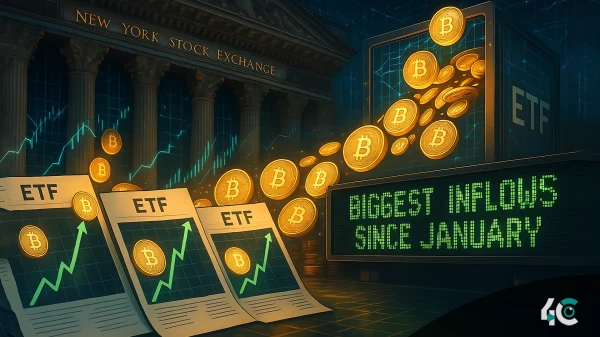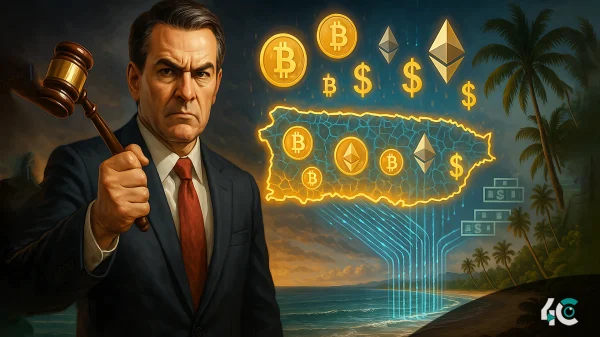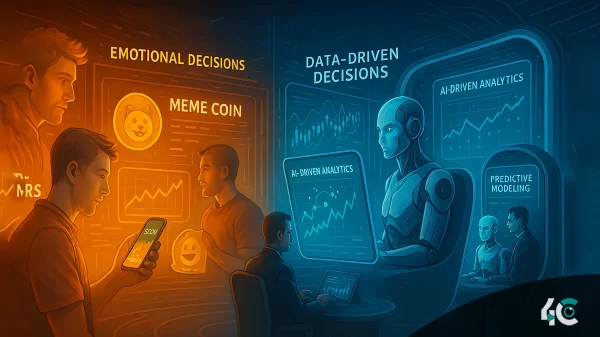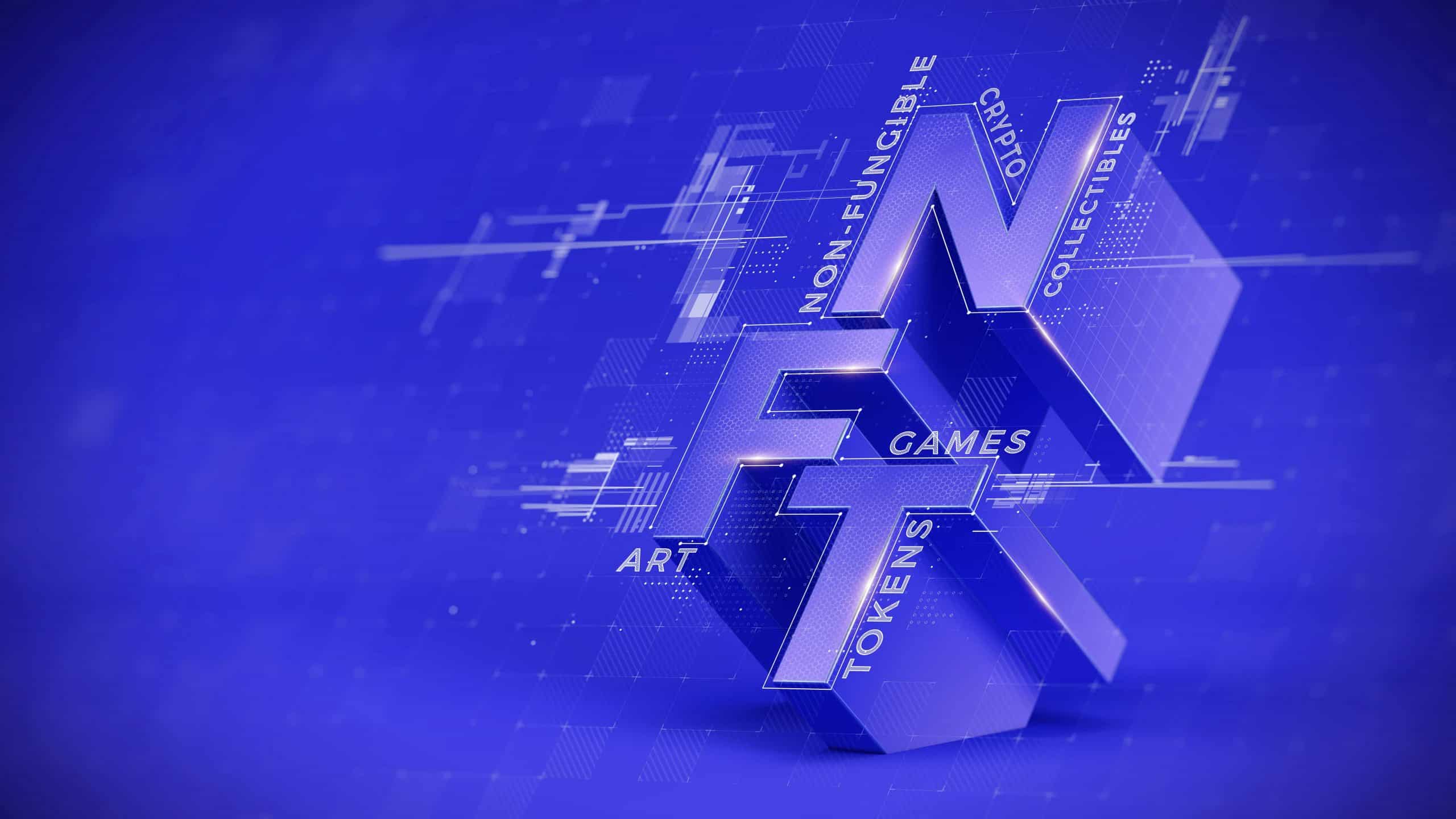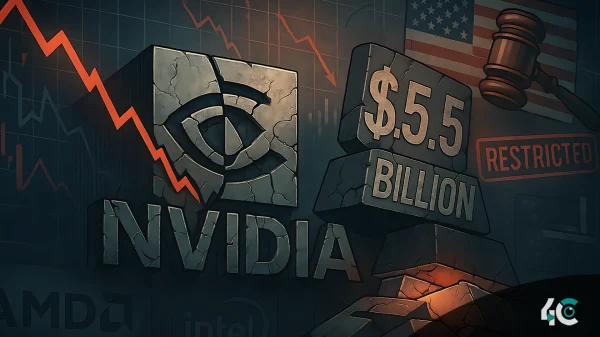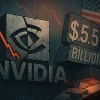This year, it seems like non-fungible tokens (NFTs) have taken off like wildfire. Some of these digital assets are selling for millions of dollars, ranging from art and 3Ds to pizzas and soda cans!
NFTs are expensive, but are they worth it? Like the dot-com craze or Beanie Babies, some experts say they’re a bubble waiting to burst. Many others believe NFTs will change investing forever.
What is an NFT?
An NFT is a digital asset, such as art, music, in-game items, or videos, that represents a real-world object. Online, they are frequently purchased and sold with cryptocurrencies, and they are encoded with the same software as many cryptos.
Despite being around since 2014, NFTs are slowly gaining popularity as a means of buying and selling digital artwork. The increasing value of these novel digital assets is evidenced by recent NFT sales, including the $149 million auction sale of Beeple’s NFT-based digital artwork.
Moreover, NFTs are usually one-of-a-kind, or at least limited editions, and have unique identifiers. As Arry Yu, managing director of Yellow Umbrella Ventures and chair of the Washington Technology Industry Association Cascadia Blockchain Council, says, NFTs create digital scarcity.
An NFT that is associated with a digital image does not generally contain the image file, but merely functions as a smart contract that links to the image file. Using blockchain technology, this smart contract tracks changes in ownership and verifies authenticity, much like a digital provenance. In addition, NFTs can be configured to give royalty payments once the NFT is sold, demonstrating how these assets are designed to be flexible and versatile.
NFTs are a new form of non-tangible property that has significant implications in the fields of art, entertainment, fashion, and marketing and advertising. NFT platform and portfolio owners should carefully consider the benefits of this ownership model and anticipate new applications of or changes to existing body of law, such as copyright and false advertising, that will address NFT issues.
How is an NFT different from Cryptocurrency?
A physical currency can be traded for another cryptocurrency, which means they are fungible. A dollar is always worth another dollar; a bitcoin is always worth another bitcoin. With crypto’s fungibility, blockchain transactions can be trusted.
NFTs are different. The digital signatures on each NFT make it impossible to exchange them for one another or to equate them (hence, they are not fungible). For example, one NBA Top Shot clip is not the same as another just because they’re both NFTs. For that matter, one NBA Top Shot clip isn’t even necessarily equal to another.
How does an NFT work?
NFTs are recorded on a blockchain, which is a distributed public ledger. You probably know blockchain best as the underlying technology behind cryptocurrencies. The Ethereum blockchain is the most commonly used blockchain for holding NFTs, but other blockchains may also support them.
In order to generate NFTs, digital objects representing tangible and intangible items are combined, including:
• Art
• GIFs
• Videos and sports highlights
• Collectibles
• Virtual avatars and video game skins
• Designer sneakers
• Music
Tweets also count!! A tweet from Twitter co-founder Jack Dorsey sold for nearly $3 million as an NFT.
NFTs can only have one owner at a time. It is easy to verify ownership of NFTs and transfer tokens between owners thanks to their unique data. They can also be used to store specific information. As an example, artists can include their signature in an NFT’s metadata to sign their works.
What are NFTs used For?
Artists and content creators can use blockchains and NFTs to monetize their products. To sell their art, artists no longer need to rely on galleries or auction houses. An artist can instead sell it directly to a consumer as an NFT, which also lets them keep more of the profits. A percentage of sales can also be programmed into the system so that artists receive royalties when the piece is sold. In general, artists do not receive future proceeds from the sale of their art after it is first sold.
NFTs aren’t just for art. Taco Bell and Charmin have auctioned themed NFT art to raise money for charity. Charmin called its offering NFTP (non-fungible toilet paper), while Taco Bell’s NFT art sold out in minutes at 1.5 wrapped ether (WETH).
NFTs are gaining popularity among celebrities like Snoop Dogg and Lindsay Lohan, who release singular memories, artwork, and moments as securitized NFTs.
How to buy NFTs?
Your first step will be to get a digital wallet that allows you to store NFTs and cryptocurrencies. Depending on which currencies your NFT provider accepts, you may have to buy some cryptocurrency, like Ether. With platforms like Coinbase, Kraken, eToro, PayPal, and Robinhood, you can now buy crypto with a credit card. Then you can transfer it from the exchange to your wallet of choice.
When researching options, keep fees in mind. Almost all exchanges charge at least a percentage of your transaction when you buy crypto.
Challenges and risks associated with Non-Fungible Tokens (NFTs)
Consider understanding these risks and challenges with NFTs if you are planning to get into the NFT market.
Smart contract risks and maintenance of NFTs
The NFT market is currently facing a prominent risk related to smart contracts and NFT maintenance. Hackers have attacked DeFi (Decentralized Finance) networks in several scenarios and stolen a large amount of crypto. Hackers recently broke into Poly Network, the most renowned DeFi protocol, and stole $600 million in NFT theft. This was due to a security flaw in smart contracts.
In order to launch such a large-scale attack on the Poly Network, the hackers exploited the flaws of smart contracts. Tokens can be swapped over different blockchain networks using the Poly network. As a result, smart contracts cannot provide complete security if they even have a tiny flaw.
Evaluation Challenges
It is difficult to determine the price of NFTs due to the uncertainty of the market. Any NFT price will be determined by its creativity, uniqueness, scarcity of the buyers and owners, and a lot more. Because there are no fixed standards for any particular type of NFT, prices fluctuate considerably.
NFT’s price cannot be predicted because people don’t know what drives it. Therefore, the fluctuation in prices remains constant, and NFT evaluation is difficult.
Legal Challenges
There is no legal definition of NFT anywhere in the world. NFT is classified differently in various countries, such as the UK, Japan, and the EU. As a result, there is a need to create an international body for non-fungible tokens for setting regulations and legalization worldwide.
The NFT market is experiencing a rapid rise, which is why it is crucial to have a regulatory body. NFTs have vastly increased in use cases. A regulatory body needs to adapt to NFTs’ rules and regulations.
It is still unclear what the true definition of NFT is according to current laws. As the NFT market and variety are constantly growing, it is becoming increasingly difficult to establish a solid foundation for compliance in NFTs.
Cyber Threats and Online Fraud Risks
Cyber threats to the NFT market have also increased with the popularity of NFT. The internet is flooded with replicas of the original NFT stores. The original logos and content make these replicas appear authentic. False NFT stores pose a great risk because they might sell NFTs that aren’t even available in the digital world. Additionally, there is the possibility of counterfeit NFTs being sold on a fake NFT store.
Fake NFTs can also be sold by someone impersonating a famous NFT artist. As a result of copyright theft, fake airdrops, fake NFT giveaways, and replication of popular NFTs, online fraud is a major problem. Occasionally, social media is used to promote such giveaways. Such fake stores are scamming people while promoting NFT.
Intellectual Property Rights
The ownership of any NFT is an important topic to consider. It is important to find out if the seller owns the NFT you are interested in purchasing. It is common for people to pose as sellers and only sell replicas. In this case, you will receive only the right to use the NFT but not the intellectual property rights.
The terms and conditions for ownership of an NFT can be found in the metadata of the smart contract. It is only appropriate for artists to display NFTs that they own. The traditional laws of property cannot be applied to NFT marketplaces. In order for decentralized blockchain technology to be effective, additional intellectual property rights are necessary, such as publicity rights, trademarks, and copyrights.
Challenge of considering NFTs as Securities
Many people consider NFTs to be securities. Most of the NFTs in the market are deemed securities by the SEC (Securities and Exchange Commission). However, the Supreme Court only associates NFTs with investment contracts. That’s a major risk for NFTs. NFTs must meet certain criteria of the Howey test to qualify as securities.
Major risks of the Current NFT Ecosystem
NFT is a risky ecosystem. Blockchains and cryptocurrencies are among the challenges users face. However, NFTs allow users to own their assets and have digital property rights on a practical level, which is worth the risk.
Adoption
Adoption is an obvious danger. Users may not care about truly owning their assets, so they will continue to engage with games and virtual worlds that provide centralized items.
Users would be ecstatic if Fortnite suddenly opened up its in-game markets to all and trade, regardless of decentralization and true ownership. It is only after an incident where their items are deleted that people realize the consequences of not fully owning their items. NFT does not allow this. NFTs will (hopefully) enable more people to demand property rights as our digital lives and assets become more important.
Startup Risk
Startups fail 94% of the time. Startups going out of business and no longer hosting NFT metadata are the most obvious threat to NFT infrastructure. Metadata stored off-chain is especially vulnerable to this risk, which is what most NFT projects do today. The NFT owners could be left with nothing but their crypto tokens if a company goes out of business and cannot pay for metadata hosting. Data, properties, images, and other metadata used to create NFTs will disappear. NFTs would become essentially worthless if this were to happen.
Tokens would be completely fine if the assets of the startup were fully on-chain (so that all metadata accompany the tokens), but the ecosystem of the startup would still face issues.
Hosting Risk
Cloud providers host the majority of NFTs that we collect and use today. There are literally millions of dollars dependent on the goodwill of these companies, which is quite alarming.
Any type of potential competition from these tech giants is not well received. Do you remember when Facebook banned all cryptocurrency-related ads before launching its cryptocurrency, Libra? When YouTube (actually, Google, since they own YouTube) banned most crypto-related videos on their platform? How would Amazon, Google, or Microsoft react if they launched their own NFTs and stopped hosting their competitors? It may seem far-fetched today, but no one could have imagined Facebook would issue their own cryptocurrency or Microsoft would issue their own NFTs on Ethereum a few years ago. Fortunately, there are alternatives to storing data on these major cloud providers, such as IPFS and Arweave.
Chain Risk
Big concern is blockchain issues. Other issues aren’t as permanent as blockchain. Someone could reach out to the founders of a startup that goes out of business and work out how to obtain the token metadata to revive the project. Or, if a cloud provider discontinues hosting NFT metadata, then an NFT project can move to another competitor or even set up its own servers. The blockchain itself poses the biggest risk to NFT infrastructure.
In the past few years, blockchains like Ethereum have proven quite robust, but the fear that Ethereum’s code might contain a bug that prevents it from functioning as it should. Ethereum’s worst-case scenario was already experienced in 2016. The DAO is a decentralized venture capital project that launched using Ethereum as a platform, but had major code issues. Hackers were able to move money from the DAO entity into their wallets. The Ethereum Classic and Ethereum Chains were both split due to a hard fork, which resulted in the DAO exploit occurring on Ethereum Classic and the Ethereum Chain for the upgraded version.
In the future, another Ethereum code bug that allows a hacker to steal NFTs from users could lead to another hard fork and chain split. Although this is only one type of attack, there could be many others.
As Ethereum transitions to Ethereum 2.0, this fear is more pertinent than ever. While Ethereum 2.0 will include a massive list of core protocol changes, it is still relatively new and hasn’t been tested extensively yet. Proof-of-stake (PoS) is replacing proof-of-work (PoW) in the consensus algorithm itself.
Nobody has ever made the transition from PoW to PoS on a blockchain as large as Ethereum, and nobody knows what will happen. Countless security audits will be conducted, but I doubt that a piece of software this large, with so many moving parts, will be protected. On Ethereum 2.0, even smart contracts might behave differently. Therefore, anyone who has built a DApp needs to ensure their contracts still function properly after the transition.
Regulatory Risk
There is currently no regulation of NFTs around the world (as far as I am aware). Money flow is regulated, so every gateway that accepts fiat is probably regulated, but for NFT-specific gateways, intense regulation is not necessary. Even though fiat currency can be used to buy NFTs (specifically USD), regulators are unlikely to make it too difficult since NFTs are a good or item. Startups do not face anti-money laundering and Know-Your-Customer laws as they do with regular crypto.
As the NFT market grows, politicians may add artificial regulatory burdens to get a piece of the pie. Benjamin Lawsky, a former regulator in New York State, created an overly burdensome crypto regulatory regime called BitLicense in the infamous BitLicense case. Essentially, he took a confusing law, passed it, and then left public office to start a consulting firm, helping crypto companies navigate the law and get BitLicenses. It seems unlikely, but it is possible. We should prepare for the worst and hope for the best.
Conclusion
You should always do thorough research before jumping into anything just because it’s hyped. For NFTs, it’s best to understand all its risks and challenges first. By eliminating risks, you will also be able to buy and sell NFTs in the market.





